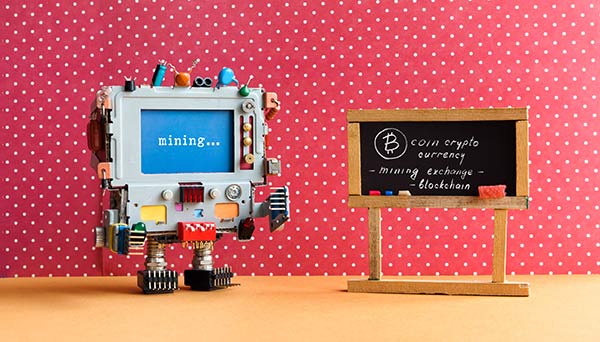ERP software continues to evolve with the developing technology. With the cooperation of Blockchain and ERP, enterprises can take a step forward in the competitive environment.

ERP vendors are actively taking steps to create tighter synergies between their enterprise platforms and blockchain as a way to create efficiencies and disrupt existing business processes supporting complex industry supply chains.
Major vendors in this space, including SAP and Oracle, are working on integrating support for blockchain into their core ERP platforms, while also announcing specific sets of blockchain services as part of their broader cloud initiatives. In addition to the behemoths, more narrowly targeted ERP players, like IFS, are actively exploring how to meld their platforms with blockchain capabilities to bring new levels of trust and efficiency to extended supply chain interactions.
SAP and blockchain
SAP, for example, offers blockchain as a service, billed as a low-risk way for businesses to start experimenting with the technology and integrate it into their SAP environments. There is also a planned SAP HANA blockchain service that will deliver analytics capabilities for working with blockchain data. In addition, SAP is working to integrate blockchain tools into its core enterprise platforms, including ERP, to support specific use cases. Currently available to customers as coinnovation pilots are SAP blockchain capabilities for track and trace of goods across the supply chain; specific track-and-trace capabilities to support the counterfeiting and illicit trade requirements of the pharmaceutical industry; and functionality for achieving real-time visibility into global and domestic transportation and logistics management.
At the May 2019 Sapphire Now + ASUG Annual Conference, SAP will host over 40 sessions on blockchain, underscoring the breadth and depth of its relationship with ERP, said Gil Perez, senior vice president of products and innovations and head of digital customer initiatives at SAP. “The two important building blocks for blockchain and ERP are a system of record and trust, and putting those together is an important combination,” he explained. “Because blockchain creates a system that everyone agrees to, it provides a level of trust that is more potent, especially when you have multiple entities that don’t necessarily trust each other.”
Right now, SAP is training its blockchain and ERP efforts on pharmaceutical and food safety applications. In that vein, Swiss Post and partner Modum have designed a blockchain solution that monitors the temperature of medicines, like insulin, at all stages of the transport chain. Sensor data on the temperature of physical goods is recorded to the blockchain, and based on agreed-upon terms, a smart contract will automatically initiate the proper actions in accordance with that data — for example, sending the product again if there’s a problem or issuing an invoice. Another example is Bumble Bee Foods using the SAP Cloud Platform Blockchain service to trace the journey of yellowfin tuna, giving customers instant data on the size of the catch or point of capture and providing verification of authenticity, freshness and safety.
IFS exploring blockchain capabilities
For IFS, which offers an ERP system aimed at companies centered around complex products or assets, the combination of blockchain and ERP is an interesting way to deliver a single version of an asset’s maintenance history to various stakeholders, partners and future owners throughout its lifecycle, said Bas de Vos, director of IFS Labs, the R&D arm piloting the proof of concept. Typically, players in the aviation industry, for example, verify parts and scheduled maintenance work using disparate systems, which is cumbersome and could result in bad decision-making based on incomplete service history. “It’s really about transparency through the entire chain,” de Vos said. “Blockchain maintains a single data view of what happens with a product that’s produced — that’s the use case.”
Oracle blockchain applications
Oracle launched a suite of use case-specific blockchain applications constructed with the company’s Blockchain Cloud Service and connected to its cloud-based supply chain management and ERP platforms. The applications include Intelligent Track and Trace, for end-to-end traceability of goods and transactions in a supply chain; Lot Lineage and Provenance, to aid in regulatory compliance, targeted recalls and counterfeiting prevention; Intelligent Cold Chain, to ensure the quality and safety of refrigerated goods as they proceed through the supply chain; and Warranty and Usage Tracking, for replacing paper-based processes with automated usage tracking on high-value assets.
With its initial suite of applications and for future blockchain-enabled use cases, it’s the automation possibilities where the combination of blockchain and ERP really shines, according to David Haimes, senior director of Oracle ERP cloud development. For example, a self-governed blockchain network could enable automated smart contracts, instant payments and IoT-activated shipments without human interaction.
“Businesses spend a lot of time in ERP establishing trust that they have the same data by passing documents back and forth and reconciling information,” Haimes explained. “By trusting this as a single source of truth, partners can be much more comfortable automating transactions and not having a human verify every step along the way.”
Get 2019 ERP Pricing: 45 different ERP systems profiled including Epicor, Microsoft, SAP and more. Click to download your free guide.





